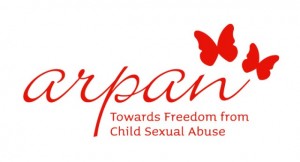Silences and Safe Spaces: Therapeutic Help for Child Sexual Abuse Survivors
Posted by spark_editoron Nov 5, 2014 in November, Priority Features, Social Lens | 0 comments
by Shreya Sen and the Therapeutic Intervention team at Arpan
Therapy for child sexual abuse survivors is an aspect often ignored when it comes to responding to abuse. However, therapy can help navigate the various trying circumstances a survivor faces, such as in the case of incest. Shreya Sen, with the Therapeutic Intervention team at Arpan, an organization that works to prevent child sexual abuse, talk about the various ways therapy can help heal.
Addressing an issue as prevalent as child sexual abuse is often a daunting task. The patriarchal structure of our society  is such that those lower in the power hierarchy (in this case, on grounds of their age) are often faced with a greater risk of sexual violence. This structure also supports and perpetuates an environment of fear and silence around this issue; so much so that the idea of community honor has come to be strongly associated with it. As an organization working towards the prevention of child sexual abuse, one of our biggest struggles is to challenge this culture of shame and social stigma attached to it so that the victim-survivors of sexual violence, and their families, choose not to keep the abuse a secret for the fear of losing social standing.
is such that those lower in the power hierarchy (in this case, on grounds of their age) are often faced with a greater risk of sexual violence. This structure also supports and perpetuates an environment of fear and silence around this issue; so much so that the idea of community honor has come to be strongly associated with it. As an organization working towards the prevention of child sexual abuse, one of our biggest struggles is to challenge this culture of shame and social stigma attached to it so that the victim-survivors of sexual violence, and their families, choose not to keep the abuse a secret for the fear of losing social standing.
 is such that those lower in the power hierarchy (in this case, on grounds of their age) are often faced with a greater risk of sexual violence. This structure also supports and perpetuates an environment of fear and silence around this issue; so much so that the idea of community honor has come to be strongly associated with it. As an organization working towards the prevention of child sexual abuse, one of our biggest struggles is to challenge this culture of shame and social stigma attached to it so that the victim-survivors of sexual violence, and their families, choose not to keep the abuse a secret for the fear of losing social standing.
is such that those lower in the power hierarchy (in this case, on grounds of their age) are often faced with a greater risk of sexual violence. This structure also supports and perpetuates an environment of fear and silence around this issue; so much so that the idea of community honor has come to be strongly associated with it. As an organization working towards the prevention of child sexual abuse, one of our biggest struggles is to challenge this culture of shame and social stigma attached to it so that the victim-survivors of sexual violence, and their families, choose not to keep the abuse a secret for the fear of losing social standing.
This culture of silence is often internalized by the victims themselves. A lot of survivors talk about how difficult it was for them to disclose their abuse to their support systems because they felt ashamed and guilty about what happened to them. For survivors to be able to share their stories, it is imperative to create and acknowledge spaces with a safe, compassionate and supportive environment within their immediate surroundings (families, schools, neighborhoods, etc.). Thus, it is important to work towards greater awareness at a societal level, stressing on the wide, prevalent existence of child sexual abuse and how it ties into our social fabric. Persistent and unrelenting work on this would gradually take us towards the larger societal attitude changing in favor of being more acceptable and open to addressing the issue. Additionally, having an atmosphere where sexual abuse is openly talked about allows for survivors to share their stories with each other and build a support system that allows for disclosure in an empathetic space. Through our work, we have found that people often make their own disclosures after witnessing other survivors share their histories of abuse.
At the same time, it is also essential to increase access to safe spaces beyond immediate support systems. Counselling therapy and support is one such safe space that needs to be made available to survivors for their growth and healing. In the present social context, survivors usually have to cope within a dichotomy where their abuse is being either wholly dismissed and/or ignored, or their entire personhood is being built around their experience of abuse. Therapists work towards providing survivors with stable, secure, affirmative relationships which give them a space to feel the way they want to and to help them make meaning of their experiences in their journey of healing. Furthermore, therapists are able to help survivors recognize and acknowledge the significant and seemingly insignificant coping mechanisms that the survivors may have subconsciously adopted to rebuild their lives.
 Unfortunately, the stigma around child sexual abuse is matched by the prejudices against its impact on mental health. At our organization, we spend a lot of time addressing the anxieties of survivors and their families that makes them resistant to the idea of therapy. Educating guardians on the meaning and methods of counselling helps reduce some of the resistance since some of the myths and misconceptions they hold against therapy get addressed. For most people, therapy is not as important a form of intervention as some others like legal support or rescue and rehabilitation programmes. But counseling/therapy is often one of the most productive way of helping survivors cope within their existing situation. For instance, in some cases of incest, the abuser may be the primary care taker of the child upon whom the child is dependent for his/her financial, physical and even emotional needs. In such cases, the survivor’s sense of helplessness and loss of control gets further reinforced because they see no escape from their situation. Here, once again, the therapist is able to empower the survivor by helping them recognize and implement their own coping mechanisms, while also being able to strengthen alliances with other trusted/helpful adults (such as a non-offending parent, a teacher, a neighbor, etc.) who can support the child and ensure a greater degree of safety for the child.
Unfortunately, the stigma around child sexual abuse is matched by the prejudices against its impact on mental health. At our organization, we spend a lot of time addressing the anxieties of survivors and their families that makes them resistant to the idea of therapy. Educating guardians on the meaning and methods of counselling helps reduce some of the resistance since some of the myths and misconceptions they hold against therapy get addressed. For most people, therapy is not as important a form of intervention as some others like legal support or rescue and rehabilitation programmes. But counseling/therapy is often one of the most productive way of helping survivors cope within their existing situation. For instance, in some cases of incest, the abuser may be the primary care taker of the child upon whom the child is dependent for his/her financial, physical and even emotional needs. In such cases, the survivor’s sense of helplessness and loss of control gets further reinforced because they see no escape from their situation. Here, once again, the therapist is able to empower the survivor by helping them recognize and implement their own coping mechanisms, while also being able to strengthen alliances with other trusted/helpful adults (such as a non-offending parent, a teacher, a neighbor, etc.) who can support the child and ensure a greater degree of safety for the child.
It is crucial to acknowledge the short-term and long-term mental health impacts that sexual abuse can have on a child. Trauma, in the context of sexual abuse, can be all pervasive and it may (or may not) affect various aspects of an individual’s life. To what extent it will affect someone depends on several parameters such as the age of the child, available resources, support systems, severity of abuse, relationship with the abuser and so on. The relationship established between the therapist and the survivor can often become one of the first truly egalitarian space for the survivor to regain a sense of power and control. Therapy helps survivors overcome their guilt by attributing accountability of the abuse to the perpetrator instead. Additionally, therapists can help survivors cope with issues like depression and anxiety by helping them set long term goals and envision a life beyond and outside of the abuse.
Children need to be respected, heard, spoken to (softly, openly, honestly). Their curious questions need to be answered creatively, genuinely and playfully. They believe in us and expect that we believe them in return. These are some harbingers of a relationship that the child will treasure forever! If we were to think of a child being violated of her/his basic integrity like in sexual abuse, respect, belief in the child, communicating with them openly/honestly, making them feel heard and understood become more important than ever before. These can be overwhelming times not only for the child but for their entire support system. A therapist who is trained in work with children and families on this issue can be a person to validate collective feelings of concern, help the family navigate through this challenging patch and make visible the strength, resilience and hope, which was always present, but is now shaken up due to such trying times! We always urge guardians to never hesitate to access help – it is only a measure of the hopes and dreams that they have for themselves and their children.
This article was written by Shreya Sen and the ‘Therapeutic Intervention’ team at Arpan. Arpan is an NGO in Mumbai that works towards the prevention of child sexual abuse and providing therapeutic assistance to those affected by it. They also run a counselling helpline for child and adult survivors of child sexual abuse and their support systems. The helpline can be accessed on +91 98190-86444.